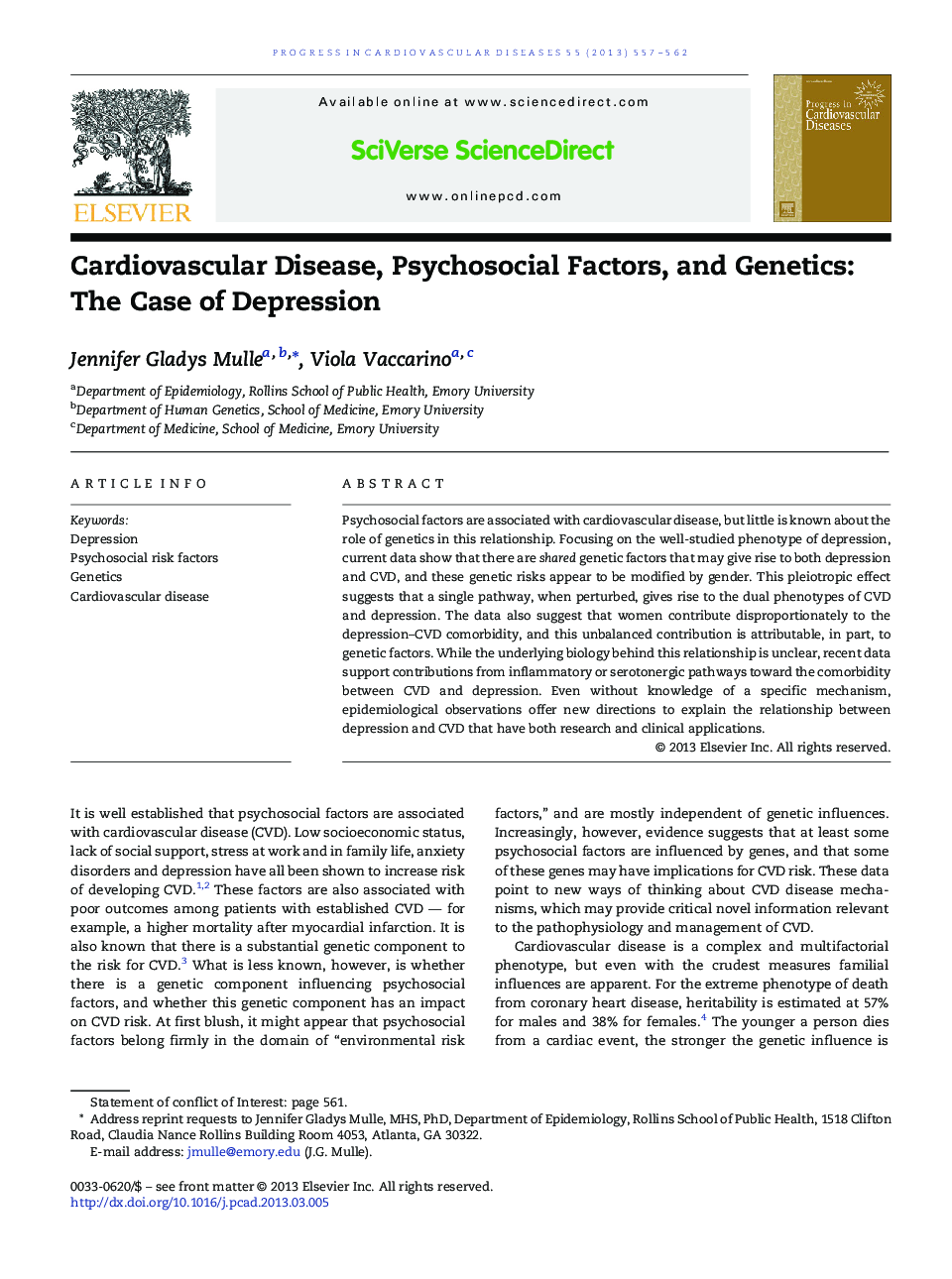| Article ID | Journal | Published Year | Pages | File Type |
|---|---|---|---|---|
| 3006224 | Progress in Cardiovascular Diseases | 2013 | 6 Pages |
Psychosocial factors are associated with cardiovascular disease, but little is known about the role of genetics in this relationship. Focusing on the well-studied phenotype of depression, current data show that there are shared genetic factors that may give rise to both depression and CVD, and these genetic risks appear to be modified by gender. This pleiotropic effect suggests that a single pathway, when perturbed, gives rise to the dual phenotypes of CVD and depression. The data also suggest that women contribute disproportionately to the depression–CVD comorbidity, and this unbalanced contribution is attributable, in part, to genetic factors. While the underlying biology behind this relationship is unclear, recent data support contributions from inflammatory or serotonergic pathways toward the comorbidity between CVD and depression. Even without knowledge of a specific mechanism, epidemiological observations offer new directions to explain the relationship between depression and CVD that have both research and clinical applications.
